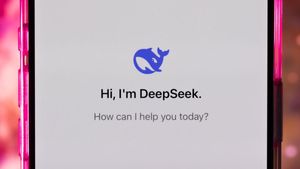OpenAI has taken significant strides to maintain its dominance in the artificial intelligence sector by launching the o3-mini reasoning model, making it available to both free and paid users of ChatGPT. This move marks the first time OpenAI is offering its reasoning models to free users, mirroring the rate limitations of its existing GPT-4o. Meanwhile, the new model arrives at a time when OpenAI faces intensified competition from the Chinese startup DeepSeek, which has rapidly ascended to prominence with its R1 and V3 language models, capturing the top spots as the most downloaded apps across both Google Play Store and Apple App Store.
After previewing the o3-mini model during its 12-day Ship-mas event back in December, OpenAI seems poised to welcome feedback from its user base. The o3-mini has been primarily engineered for tasks such as mathematics, coding, and scientific queries. It reportedly matches the performance of OpenAI's o1 model across most reasoning and assessment tests and comfortably outperforms the older o1-Mini model. OpenAI representatives emphasized, "o3-Mini model has been optimized for tasks such as maths, coding and science, and matches the performance of o1 in most reasoning and assessment tests, significantly outperforming o1-Mini with more accurate and clearer answers." This strategic enhancement is expected to attract new users and retain existing ones amid rising pressure from competitors.
DeepSeek has emerged as not just another competitor but as a disruptive force within the artificial intelligence ecosystem. Established earlier this year, its R1 model began making waves, demonstrating notable success with pricing models significantly lower than OpenAI and garnering substantial international attention. Analysts observed, "DeepSeek's sudden rise has put a dent in claims by various AI companies about China being years behind the U.S. in the artificial intelligence race." DeepSeek's V3 model was reportedly developed for only around $5.6 million using older Nvidia H800 GPUs, raising eyebrows about the capital requirements previously thought necessary for launching high-performance language models.
Meanwhile, DeepSeek's acquisition of users does not merely hinge on pricing, but also on how market perceptions shift against traditionally overhead-heavy models offered by Western companies. With DeepSeek’s cost-effective models challenging long-held beliefs, the narrative surrounding AI development is swiftly transforming. The strategy appears successful so far; the app recordings indicate rising popularity, with multiple high-profile downloads globally.
While OpenAI navigates this competitive terrain, the tech giant Apple has also been making headlines. During his recent earnings call, Apple CEO Tim Cook revealed plans to launch Apple Intelligence, its localized AI assistant, to users across India and other regions by April. Cook stated, "We’re bringing Apple Intelligence to more languages, including French, German, Italian, Portuguese, Spanish, Japanese, Korean, and simplified Chinese, as well as localized English to Singapore and India." This move underlies Apple's intent to expand its footprint and offerings, showcasing AI features accessible even without changing the default language settings for users.
The developments over the recent weeks highlight not just the advancements both companies are making individually, but the broader competition within the industry itself. OpenAI's commitment to fostering user engagement, highlighted by the introduction of the free o3-mini model, aims to regain momentum against alternatives like DeepSeek, which have substantially influenced market dynamics.
There’s no denying the palpable excitement surrounding AI innovations, as various firms race to break barriers and lead the charge. The battle between OpenAI and DeepSeek is emblematic of larger themes at play, illustrating the increasing democratization of advanced technology and AI, broadening access for users across the globe. These dynamics make this point of contention particularly fascinating, as competition drives not only innovation but also accessibility- factors we all stand to benefit from...



